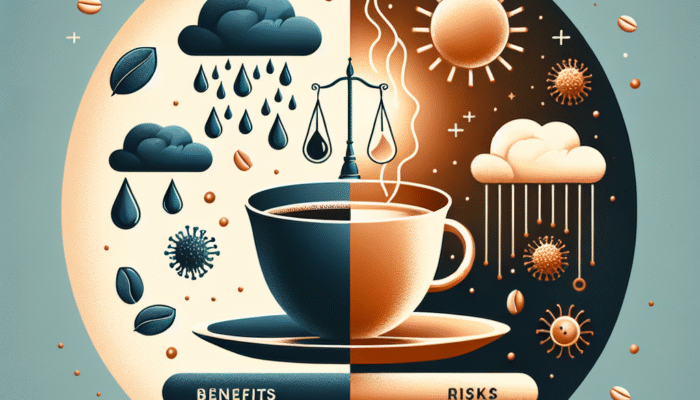
The Coffee Debate: Is It Good or Bad for Your Heart?
Welcome to the great coffee debate! For centuries, coffee has been a beloved beverage, energizing millions around the globe. However, its impact on heart health remains a contentious topic. In this post, we will explore the science behind coffee consumption and its effects on cardiovascular health.
Understanding Coffee
Coffee is made from roasted coffee beans, which are the seeds of the Coffea plant. The drink is rich in caffeine, a natural stimulant that can affect the body in various ways. However, coffee also contains antioxidants, vitamins, and minerals that contribute to its overall health profile.
Let’s delve into the two sides of the coffee debate regarding heart health:
The Case for Coffee: Potential Heart Benefits
Many studies suggest that moderate coffee consumption may be linked to several heart health benefits:
- Reduced Risk of Heart Disease: Some research indicates that regular coffee drinkers may have a lower risk of developing heart disease. A meta-analysis published in the American Journal of Clinical Nutrition found that moderate coffee consumption is associated with a 20-30% lower risk of heart disease.
- Improved Heart Function: Caffeine may enhance heart function by increasing the heart’s contractility and improving blood flow. Some studies suggest that caffeine can temporarily raise blood pressure, but this effect is often short-lived.
- Protective Antioxidants: Coffee is rich in antioxidants, such as chlorogenic acid, which may help reduce inflammation and oxidative stress, both of which are linked to heart disease.
- Type 2 Diabetes Connection: Regular coffee drinkers are often found to have a reduced risk of type 2 diabetes, which is a significant risk factor for cardiovascular disease. The mechanism behind this protective effect may be related to improved insulin sensitivity.
The Other Side: Potential Risks of Coffee
Despite its potential benefits, there are also concerns about coffee consumption and heart health:
- Increased Heart Rate: Caffeine can lead to increased heart rate (tachycardia) in some individuals, especially those sensitive to caffeine. This can be particularly concerning for those with pre-existing heart conditions.
- Blood Pressure Concerns: For some people, caffeine can cause a spike in blood pressure, especially in those who are not regular coffee drinkers. This effect may be more pronounced in individuals with hypertension.
- Potential for Addiction: Regular consumption of caffeine can lead to dependency. Withdrawal symptoms, such as headaches and fatigue, can occur when consumption is suddenly reduced.
- Pregnancy Risks: High coffee consumption during pregnancy has been associated with negative outcomes, including low birth weight and preterm birth. Pregnant women are often advised to limit their caffeine intake.
The Importance of Moderation
The key to enjoying coffee while minimizing potential risks is moderation. The general consensus among health experts is that 3 to 4 cups of coffee per day (approximately 300 mg of caffeine) is considered safe for most adults. However, individual tolerance can vary significantly.
Factors that influence coffee tolerance include:
- Genetics: Some people metabolize caffeine faster than others, which can affect their response to coffee.
- Age: Older adults may be more sensitive to caffeine and its effects on heart rate and blood pressure.
- Health Conditions: Individuals with certain health conditions, such as arrhythmia or anxiety disorders, may need to limit or avoid caffeine.
How to Enjoy Coffee Healthily
If you’re a coffee lover, here are some tips to enjoy your favorite beverage while keeping your heart health in check:
- Choose Quality: Opt for high-quality, organic coffee when possible to reduce exposure to pesticides and chemicals.
- Mind the Additives: Be cautious with sugar and creamers. Excessive sugar can contribute to weight gain and increase heart disease risk.
- Stay Hydrated: Coffee is a diuretic, so make sure to drink plenty of water throughout the day.
- Listen to Your Body: Pay attention to how your body reacts to coffee. If you experience negative effects, such as jitters or increased heart rate, consider reducing your intake.
Conclusion
The coffee debate is far from settled, but emerging research continues to shed light on its potential effects on heart health. While moderate coffee consumption may offer heart benefits for many, it’s essential to consider individual health conditions and sensitivities. Ultimately, the best approach is to enjoy coffee in moderation and make informed choices based on your unique body and lifestyle.
So, whether you savor your morning brew or enjoy an afternoon pick-me-up, remember that balance and moderation are key to a healthy relationship with coffee!


